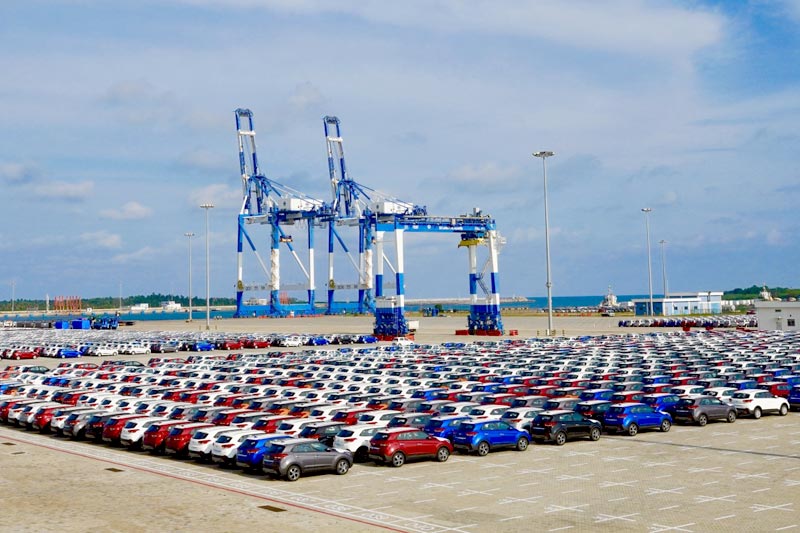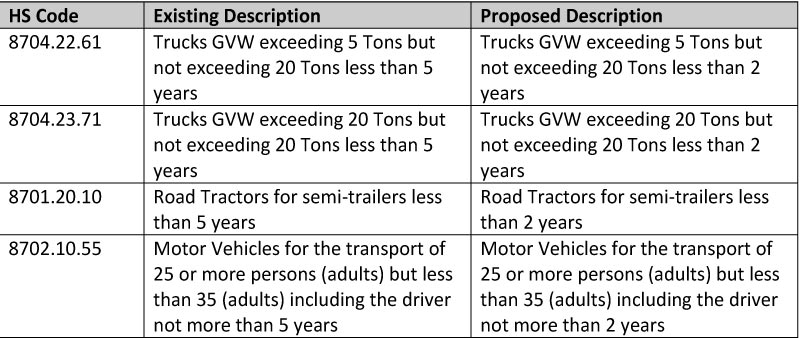Experts urge caution as Govt. prepares to lift vehicle import restrictions
Thursday, 5 December 2024 02:00 – – 10

- Stress prioritising new vehicles over used ones to avoid environmental, economic and technological issues
- Point older commercial vehicles often require frequent and costly repairs leading to massive forex outflow
- Opine SL risks becoming dumping ground for old vehicles from developed nations
- Propose enforcing stringent emissions and safety standards for imports; restrict used imports to vehicles manufactured within past two years
With impending removal of restrictions on vehicle imports early next year, industry experts have urged the Government to prioritise the importation of new vehicles over used ones, warning of significant environment, economic, and technological repercussions if outdated vehicles flood the market.
The potential reintroduction of used vehicles has drawn criticism from experts, who highlighted challenges posed by older commercial vehicles in particular.
“Given their extensive usage, a five-year-old vehicle could have clocked over 500,000 kilometres, making it prone to costly repairs of critical components such as engines, transformations, drive trains, and suspension systems. Although these expenses may not seem immediately apparent, the frequent need for maintenance and replacement parts results in a substantial foreign currency outflow, spread over multiple shipments,” they explained.
The experts listed out four key arguments against the importation of older vehicles, emphasising concerns over environmental impact, technological stagnation, economic efficiency, and Sri Lanka’s international image.
Vehicle emissions, they argued, remain a pressing global issue.
“Newer models run on more refined fuels and incorporate better emissions control technologies, while older vehicles contribute to higher pollution levels, negatively impacting the environment,” they said.
Additionally, they noted the rapid evolution of technology in the automotive industry means newer vehicles offer superior safety features, fuel efficiency, and performance.
“Encouraging the import of cheap, old vehicles stifles access to modern, technologically advanced vehicles in Sri Lanka,” they opined, noting that importers often prioritise low-cost, outdated vehicles, limiting options for Sri Lankan consumers and preventing them from benefitting from the latest innovations in safety, fuel efficiency, and performance.
The industry experts also raised a reputational concern, warning that Sri Lanka risks becoming a dumping ground for outdated and inefficient vehicles from developed nations. Similar patterns have been observed in parts of Africa and India, where a lack of stringent regulations has turned these regions into repositories for vehicles no longer desired in wealthier markets.
“By continuing to import outdated vehicles, we risk turning our country into a repository for unwanted, inefficient, and environmentally harmful cars. Should Sri Lanka really accept the role of a junkyard for obsolete vehicles?” one expert questioned.
From an economic perspective, the appeal of used vehicles lies in their lower upfront cost. However, experts cautioned that their long-term maintenance and repair expenses, coupled with a lack of warranties, often outweigh these initial savings.
“In contrast, new vehicles come with comprehensive warranties (typically for two years), minimising unexpected expenses during the initial years of ownership. Although the upfront price of new vehicles may be higher, the long-term maintenance and repair costs of used vehicles result in greater foreign currency outflows,” they pointed out.
To address these challenges, the experts proposed a series of measures to regulate vehicle imports. They suggested setting stringent standards for emissions and safety features, ensuring only vehicles that meet modern benchmarks are allowed into the country.
Furthermore, they recommended restricting used vehicle imports to models manufactured within the past two years, a move they argued would maintain environmental integrity and ensure access to newer technologies.
HS Code Existing Description Proposed Description
8704.22.61 Trucks GVW exceeding 5 Tons but not exceeding 20 Tons less than 5 years Trucks GVW exceeding 5 Tons but not exceeding 20 Tons less than 2 years
8704.23.71 Trucks GVW exceeding 20 Tons but not exceeding 20 Tons less than 5 years Trucks GVW exceeding 20 Tons but not exceeding 20 Tons less than 2 years
8701.20.10 Road Tractors for semi-trailers less than 5 years Road Tractors for semi-trailers less than 2 years
8702.10.55 Motor Vehicles for the transport of 25 or more persons (adults) but less than 35 (adults) including the driver not more than 5 years Motor Vehicles for the transport of 25 or more persons (adults) but less than 35 (adults) including the driver not more than 2 years
These proposals, they said, would not only protect Sri Lanka from becoming a repository for outdated vehicles, but also elevate consumer safety and improve the quality of the country’s vehicle fleet.







